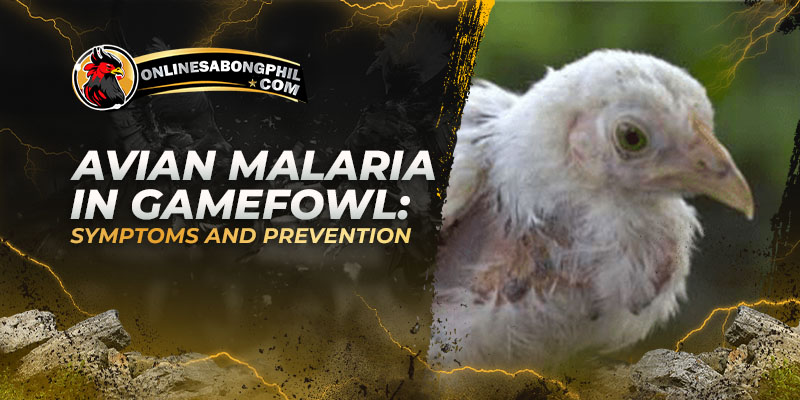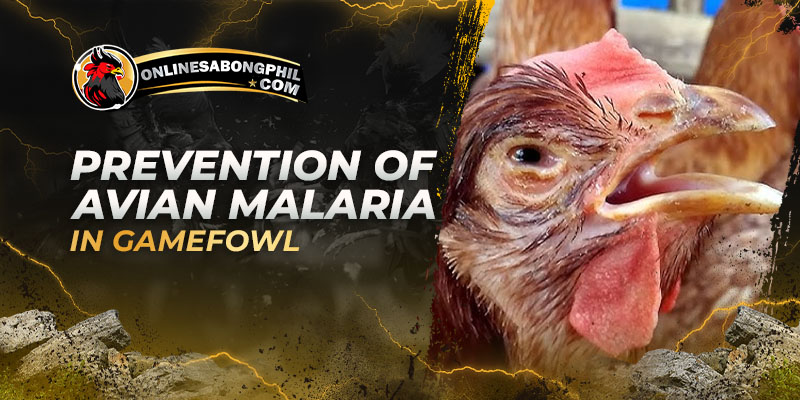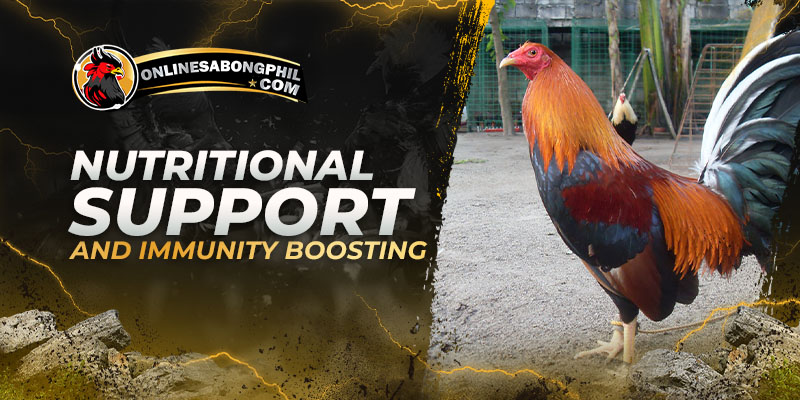You work tirelessly to keep your gamefowl in fighting form. But a hidden enemy could sabotage your efforts – avian malaria. This mosquito-borne disease silently weakens your birds, leaving them vulnerable. Caused by the Plasmodium parasite, it can spread like wildfire through your flock. Don’t let this disease ruin your hard work! This blog post reveals the danger signs of avian malaria, proven prevention methods, and what to do if your birds get sick. Protect your gamefowl and ensure their peak performance.
What is Avian Malaria?
Avian malaria is a mosquito-borne parasitic disease caused by the Plasmodium parasite. It attacks a bird’s blood system, causing anemia, organ damage, and potentially death. Gamefowl are particularly vulnerable to avian malaria due to their outdoor exposure, and the disease can significantly impact their health and performance.
Symptoms of Avian Malaria in Gamefowl
Avian malaria can be devastating for gamefowl. Learn to recognize the warning signs to protect your birds. Here are the alarming symptoms to look out for:
Acute Phase:
- Lethargy and loss of energy: Your bird appears extremely weak, uninterested in normal activities, and may have difficulty standing.
- Loss of appetite: Refusal to eat or significantly reduced food intake.
- Ruffled feathers: A visible sign that your bird feels unwell and may be trying to conserve heat.
- Increased thirst: Your bird may be drinking more water than usual in an attempt to combat fever or dehydration.
- Pale comb and wattles (anemia): These areas lose their usual red color, indicating a loss of red blood cells caused by the parasite.
- Difficulty breathing: Labored breathing or gasping may occur as the infection damages internal organs.
- Greenish diarrhea: A sign of liver damage caused by the malaria parasite.
Chronic Phase:
- Weight loss: Despite a normal or increased appetite, your bird will steadily lose weight as the disease progresses.
- Enlarged abdomen (due to organ swelling): The liver and spleen become enlarged due to the parasite, making the bird’s abdomen appear swollen or distended.
- Relapses of illness: Even after periods of seeming improvement, birds with chronic malaria may experience recurring bouts of acute symptoms like lethargy, fever, and inappetence.
Prevention of Avian Malaria in Gamefowl
Prevention is crucial since there’s no guaranteed cure for avian malaria. Here’s what you can do:
Mosquito Control
- Eliminate standing water where mosquitoes breed (like old tires or containers). Cover pens and housing with mosquito nets. Consider using bird-safe repellents or insecticides.
Screening
- Ensure gamefowl enclosures are properly screened to prevent mosquito entry.
Supportive Care
- Boost your birds’ immune systems with vitamins and supplements. Consult your veterinarian about preventative medications used during mosquito season.
Quarantine
- Isolate new birds before introducing them to your flock to prevent potential disease spread.
Veterinary Checkups
- Your veterinarian can help detect infections early and recommend the best preventative care plan for your gamefowl.
Important Notes:
- Avian malaria can severely impact the performance and health of gamefowl. Take these preventative measures seriously.
- Always consult a veterinarian specializing in poultry for accurate diagnosis, treatment options, and safe preventive medications.
Nutritional Support and Immunity Boosting
A strong immune system can help gamefowl resist infections. Ensure your birds receive a balanced diet supplemented with vitamins and minerals. Here’s a breakdown of nutritional support and immunity-boosting strategies for gamefowl:
Balanced Diet
- Provide a high-quality, well-balanced feed formulated for gamefowl. This ensures they receive the appropriate levels of protein, carbohydrates, fats, vitamins, and minerals for optimal health and performance.
Protein Power
- Protein is crucial for muscle development, tissue repair, and overall strength. Ensure adequate protein intake from sources like meat, fish, or specialized gamefowl feeds.
Energy Sources
- Carbohydrates and fats provide the energy needed for training and fighting. Include energy-dense grains and healthy oils in moderation.
Immunity-Boosting Supplements
Here’s a breakdown of immunity-boosting supplements for roosters, along with important considerations:
Vitamins:
- Vitamin A: Supports healthy skin and mucous membranes, creating a barrier against pathogens.
- Vitamin E: A potent antioxidant that protects cells and aids immune function.
- B-Complex Vitamins: Essential for energy metabolism and cellular function, contributing to overall health.
Minerals:
- Zinc: Plays a key role in immune response and wound healing.
- Selenium: Functions as an antioxidant and supports immune cell function.
Probiotics and Prebiotics
- Introduce beneficial bacteria to promote gut health, a crucial factor in the immune system.
Additional Immunity Boosters:
- Garlic: Natural antibacterial and antiviral properties.
- Herbs (like Echinacea) May have immune-stimulating effects.
Important Considerations:
- Fresh Water: Always provide clean, fresh water for optimal hydration. Dehydration weakens the immune system.
- Avoid Over-Supplementation: Excessive supplements can be harmful. Consult your veterinarian for proper dosages and combinations.
- Whole-Food Emphasis: Focus on a balanced, whole-food diet as your primary foundation. Supplements should support, not replace, a healthy diet.
Always consult your veterinarian about the specific nutritional and supplement needs of your gamefowl. They can customize a plan based on your birds’ individual requirements and health status.
Essential Practices for a Recovered Flock
Here’s a breakdown of essential practices to protect your gamefowl flock after they’ve recovered from avian malaria:
Close Monitoring
Watch for any signs of relapse, such as weakness, lethargy, or changes in appetite. Consult your veterinarian promptly if you notice anything concerning.
Enhanced Biosecurity:
- Meticulous cleaning and disinfection of housing and equipment.
- Strict mosquito control (eliminating breeding sites, using nets and safe repellents).
- Quarantine new birds before introducing them to the recovered flock.
Regular Veterinary Checkups:
Schedule follow-up visits to assess your flock’s health and receive guidance on ongoing prevention strategies.
Supportive Care
- Isolation: Separate the infected bird to prevent spread.
- Rest and Reduced Stress: Provide a quiet, stress-free environment to support recovery.
- Nutrition & Hydration: Ensure access to fresh water and easily digestible food rich in nutrients.
- Hygiene: Keep the sick bird’s area meticulously clean to prevent re-infection.
Medications:
- Some anti-malarial medications used in humans can be effective for birds, but dosages and treatment courses need careful adjustment.
- Examples include Primaquine, Chloroquine, and others.
Anti-parasitic Medications
Other non-specific anti-parasitic drugs may help manage the infection or secondary complications.
- Vitamins and supplements to boost immune function.
- Medications to address anemia or other complications.
Remember:
Even with recovery, some birds may be carriers of the parasite. Prevention is crucial to protect the long-term health of your flock.
FAQ
Is there a vaccine for avian malaria?
- As of now, there is no specific vaccine for avian malaria in gamefowl. Prevention focuses on mosquito control and good flock management practices.
Can humans contract avian malaria from gamefowl?
- No, avian malaria cannot be transmitted to humans from birds. It is specifically a bird disease transmitted by mosquitoes.
How can I tell if my bird is at risk of avian malaria?
- All birds can potentially be at risk, especially those in areas with high mosquito populations. Regular veterinary checks and preventive measures are key to protection.
What should I do if I suspect my gamefowl has avian malaria?
- If you suspect avian malaria, isolate the affected bird and contact a veterinarian immediately for diagnosis and treatment options.
Conclusion
Avian malaria poses a significant threat to gamefowl, but with the right knowledge and tools, you can protect your flock. Recognizing symptoms early, implementing robust prevention strategies, and ensuring prompt treatment can make all the difference. Remember, the health of your gamefowl is paramount; proactive measures today can prevent losses tomorrow.
Visit us at onlinesabongphil.com for more guides and tips!



